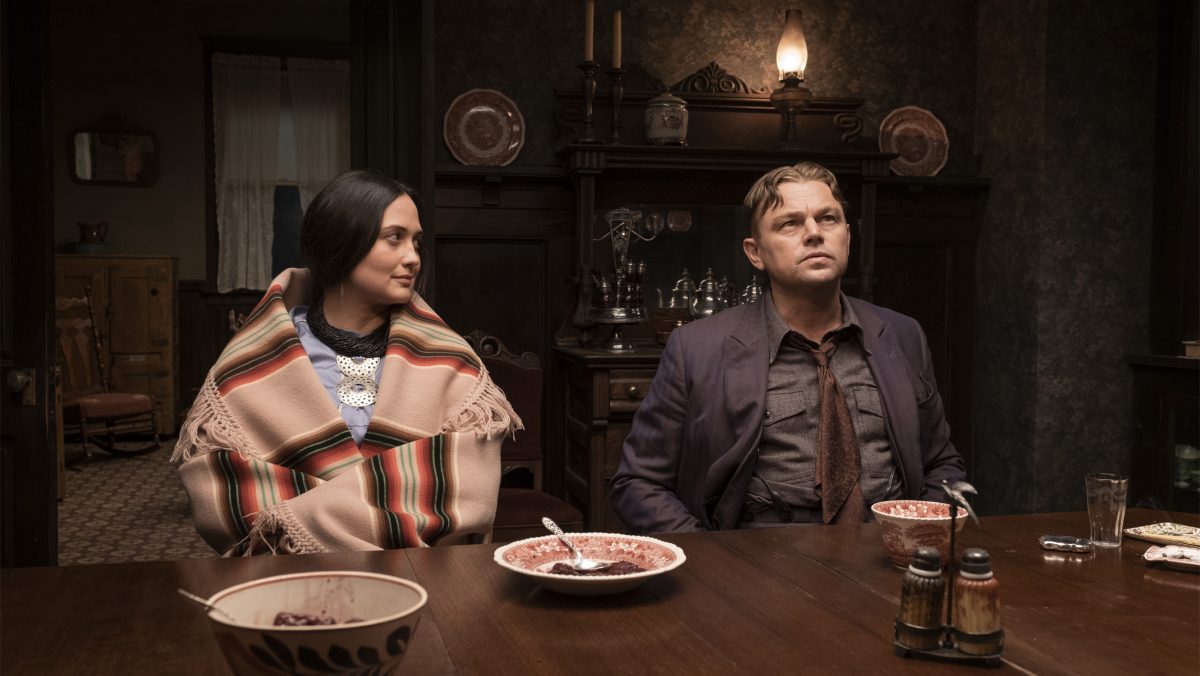The Final Moments of ‘Killers of the Flower Moon’ Are as Powerful as the Film Itself

Killers of the Flower Moon is a powerful exploration of the Osage Nation murders, which were committed in the early 20th century in Fairfax, Oklahoma. While the movie could have benefitted from being more geared towards Mollie Burkhart’s (Lily Gladstone) story, Martin Scorsese finds a balance between the toxic white male fragility that fueled the murders of the Osage people, and the pain inflicted on the Osage people simply because of these white men and their greed. There’s a shift at the end of the film that highlights how we are told history—and who gets to tell it.
By the end of the film, King (Robert De Niro) is on trial and Ernest (Leonardo DiCaprio) not only thinks that he can get away with having drugged his wife, Mollie, over and over again, but also that if he tells the truth on the stand that he’ll get away with murdering Osage women and men (he doesn’t). We learn about what happens with Ernest, Mollie, and King through the final moments of a radio production in which an all-white cast plays all the parts—including a tall white man doing a racist impression of an Osage person.
This switch in the narrative form tells us the way that many people first heard of the Osage killings, but also the way that many of these real-life stories were kept alive. Radio stories and serials were the equivalent to our modern television news hours and entertainment. So hearing of the killings with the re-enactment as performed in those final moments is a glimpse at how the world would have learned about Mollie and her people. This leads to a final moment that ties the entire process of the movie together.
Who is the man speaking Mollie’s final words?
The cast of the radio drama steps aside, and a new voice steps up to talk about Mollie’s life. After his release from prison, Ernest lived the rest of his life in a trailer with his brother Bryan. King lived a long life as well. And while Mollie didn’t die at the hands of the white men who tormented and killed her people, she was the one who suffered most, and didn’t live as long as they did. She had to waste years of her life at their hands.
The man who gives voice to Mollie’s last words is director Martin Scorsese, who has appeared in his own movies before. This was a powerful choice, and one that is a testament to the movie as a whole and Scorsese’s vision. He wanted this to be Mollie’s story, and while it is more equally split between Mollie, King, and Ernest, he dedicates time to Mollie and the Osage people in a way that other white directors wouldn’t have, given the chance. Considering the circumstances, Scorsese does an incredible job in bringing this story to life.
Ultimately, the final moments of Killers of the Flower Moon leave the audience with a lot to think about.
(featured image: Apple TV+)
Have a tip we should know? tips@themarysue.com